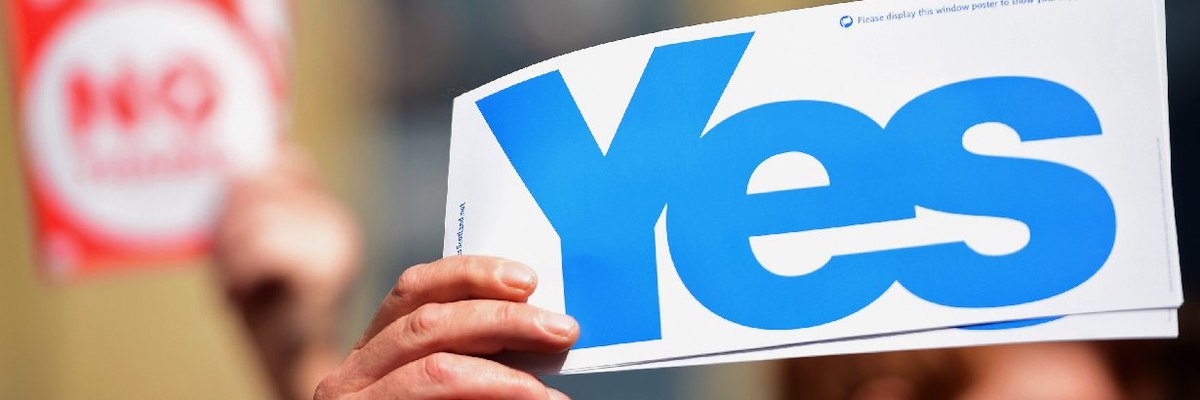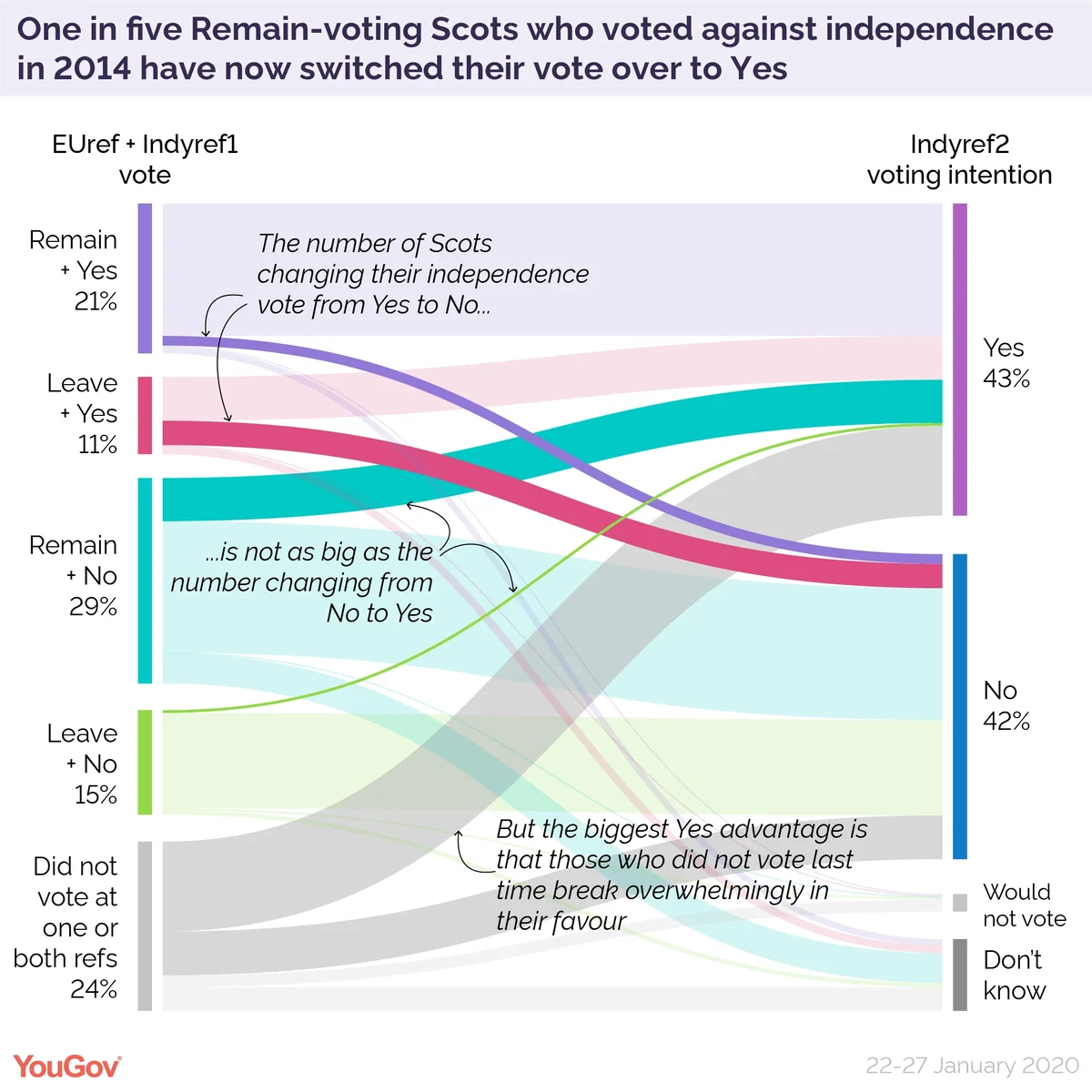On the eve of Brexit new YouGov polling looks at how the political landscape has shifted in Scotland
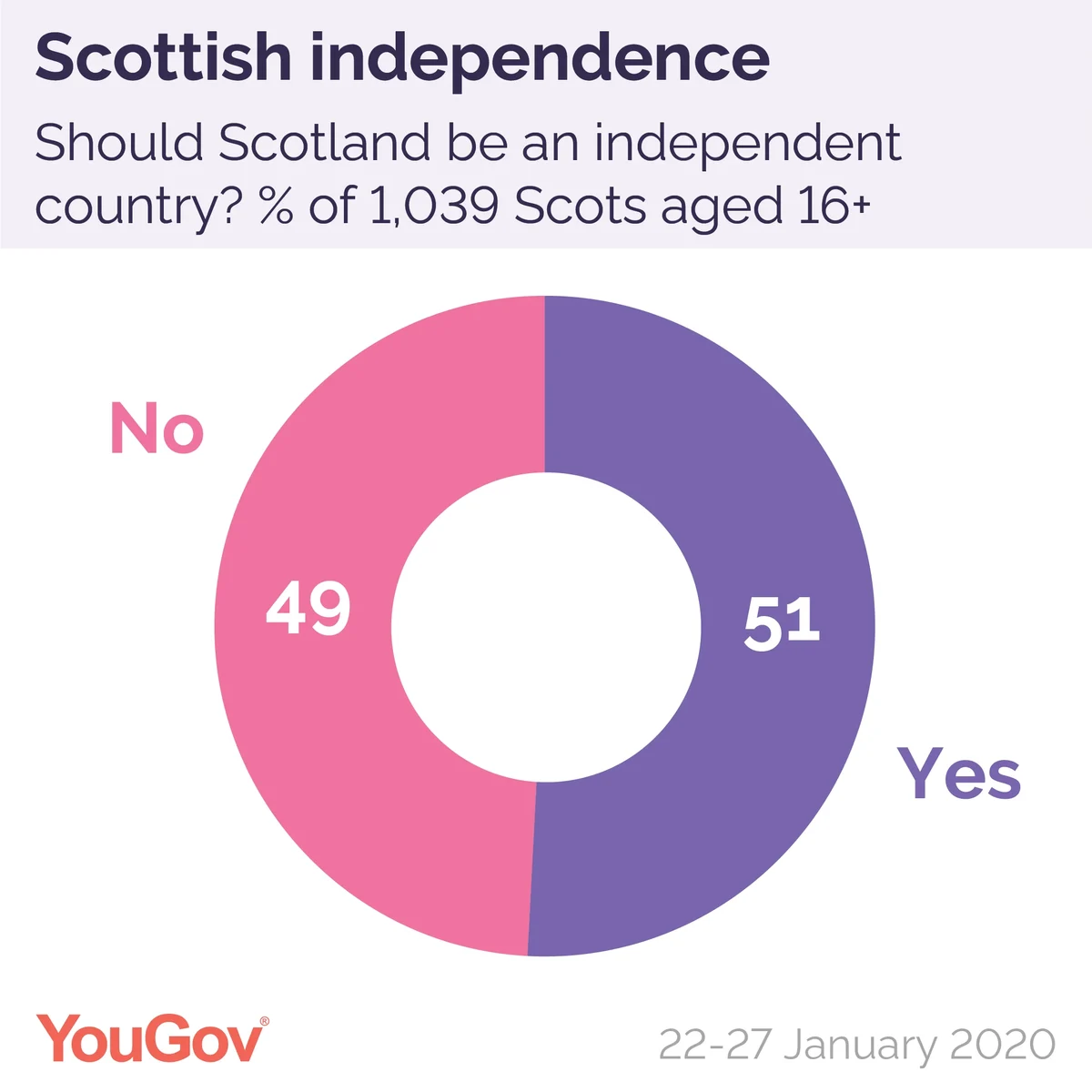
With the election over and Brexit nearly over the line, the next big political drama may now be over a second Scottish independence referendum.
Now the results of a new YouGov survey show that the “Yes” vote leads “No” by 51% to 49%, our first Yes lead since early 2015.
One reason for this shift is that Remainers are increasingly moving towards Yes. While England and Wales voted to Leave, 62% of Scots voted to Remain, and many of them had voted against Scottish independence just two years earlier.
Over one in five (21%) of those who voted Remain in 2016 but No in the independence referendum have now shifted over to Yes.
On the other side, three in ten (30%) of those who voted Leave in the referendum and Yes in 2014, now say they will vote No. However, because the former group is more than twice as big as the latter, this represents a net movement towards “Yes”.
More important still, those who didn’t vote in at least one of those referendums (including those who were too young to vote) currently break for Yes by 51% to 25%, which further shifts the balance.
Scots don’t think there should be a referendum in the next couple of years, even if the SNP win the Scottish Parliament elections
With MSPs voting yesterday to say that a referendum should be held the stage looks set for a fight between the Scottish and British governments. Nicola Sturgeon has called for a new vote to take place this year, but relatively few Scots are in favour of such an early poll.
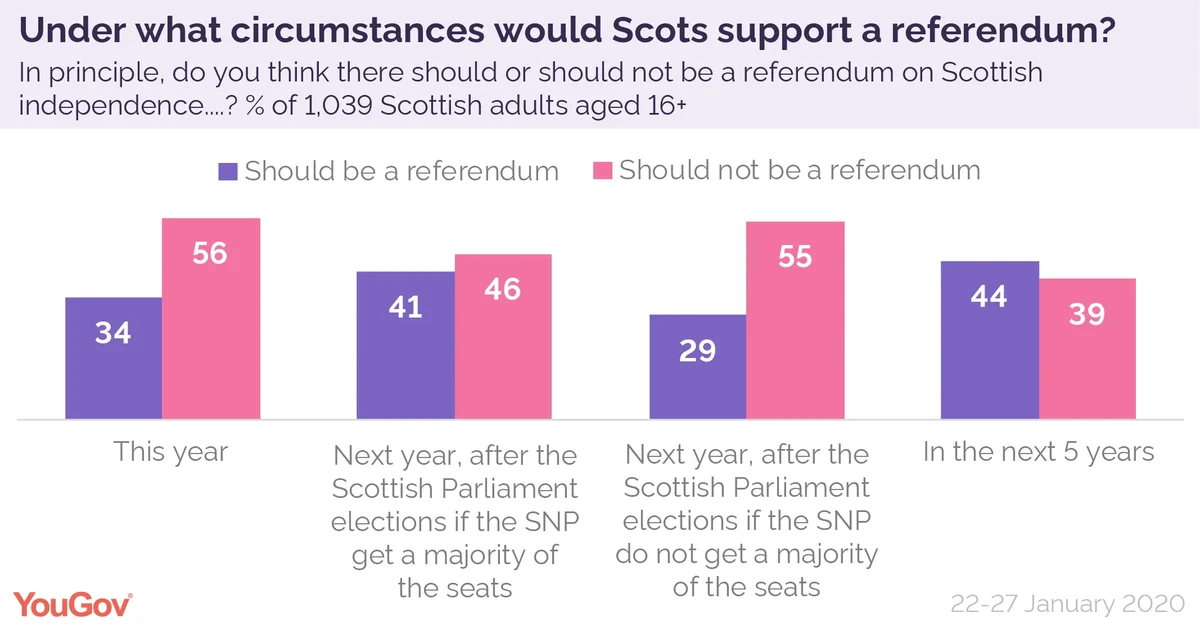
Most (56%) oppose holding indyref2 this year, with just 34% in support.
There is also opposition to holding one next year, even if the SNP win a majority in the Holyrood elections (which they would likely argue was justification of popular support for a second referendum).
The public are, however, more open to holding one in the medium term, with 44% thinking there should be another referendum in the next five years, compared to 38% opposed.
Scots still think independence will be bad for the economy
The key argument put forward by the No campaign in 2014 revolved around the economy, making the case that it would be damaging for the country to split from the rest of the UK.
Scots still think leaving would be bad for the economy, with 42% thinking Scotland would be worse off and just 34% thinking the country would be better off.
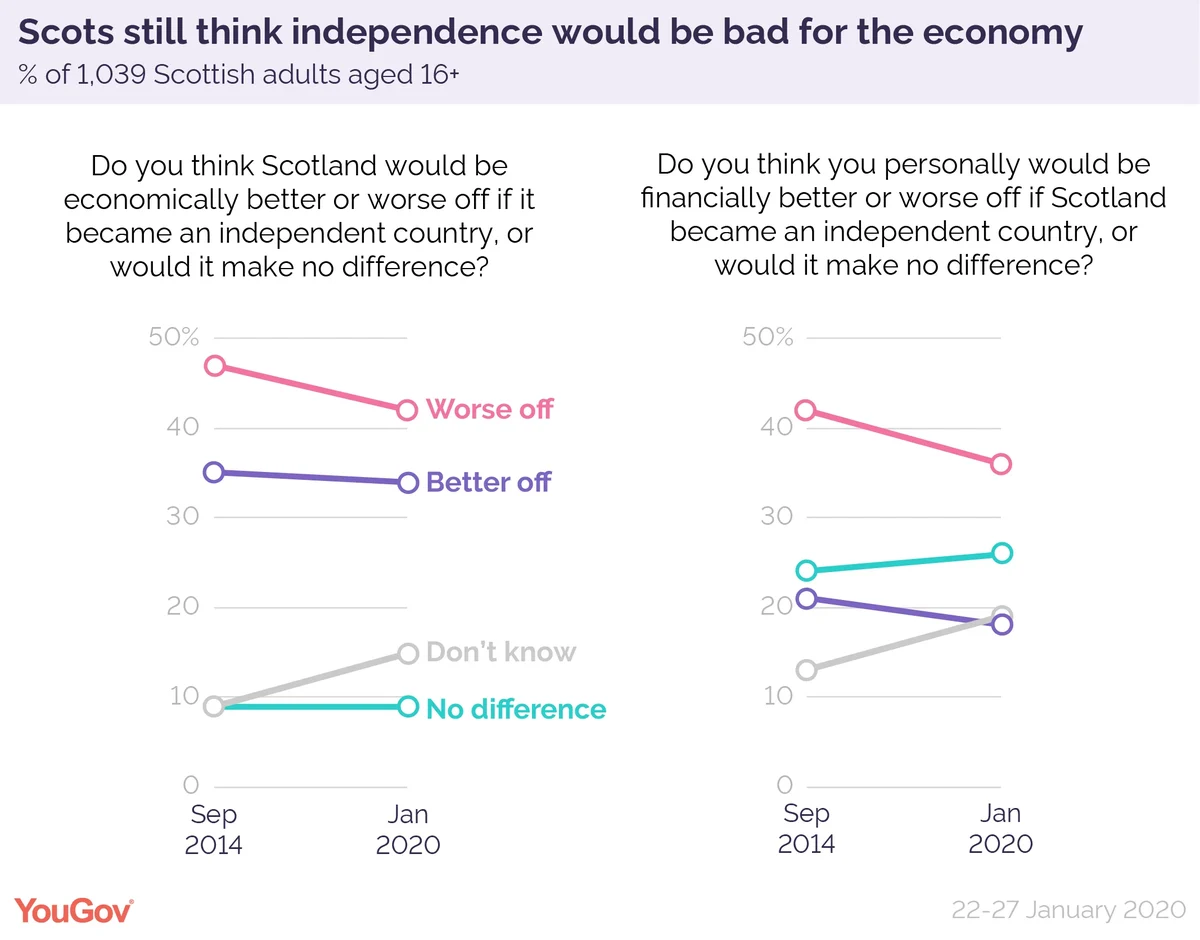
However, there is a slightly muddier picture when it comes to people’s personal finances rather than the overall economy. Just 36% think it will be bad for their own finances, down from 42% who said so in our final poll before the 2014 referendum.
One in five (18%) think they will be better off, while over a quarter (26%) think it will make no difference and 19% say they don’t know.
Nicola Sturgeon is still the most trusted politician on the country’s future
An added difficulty for a future No campaign might be finding a leader that resonates with the Scottish public.
Nicola Sturgeon remains relatively popular, despite leading the Scottish government for more than five years, with 46% saying they trust statements and claims she makes on Scotland’s future, as opposed to 46% who do not trust her.
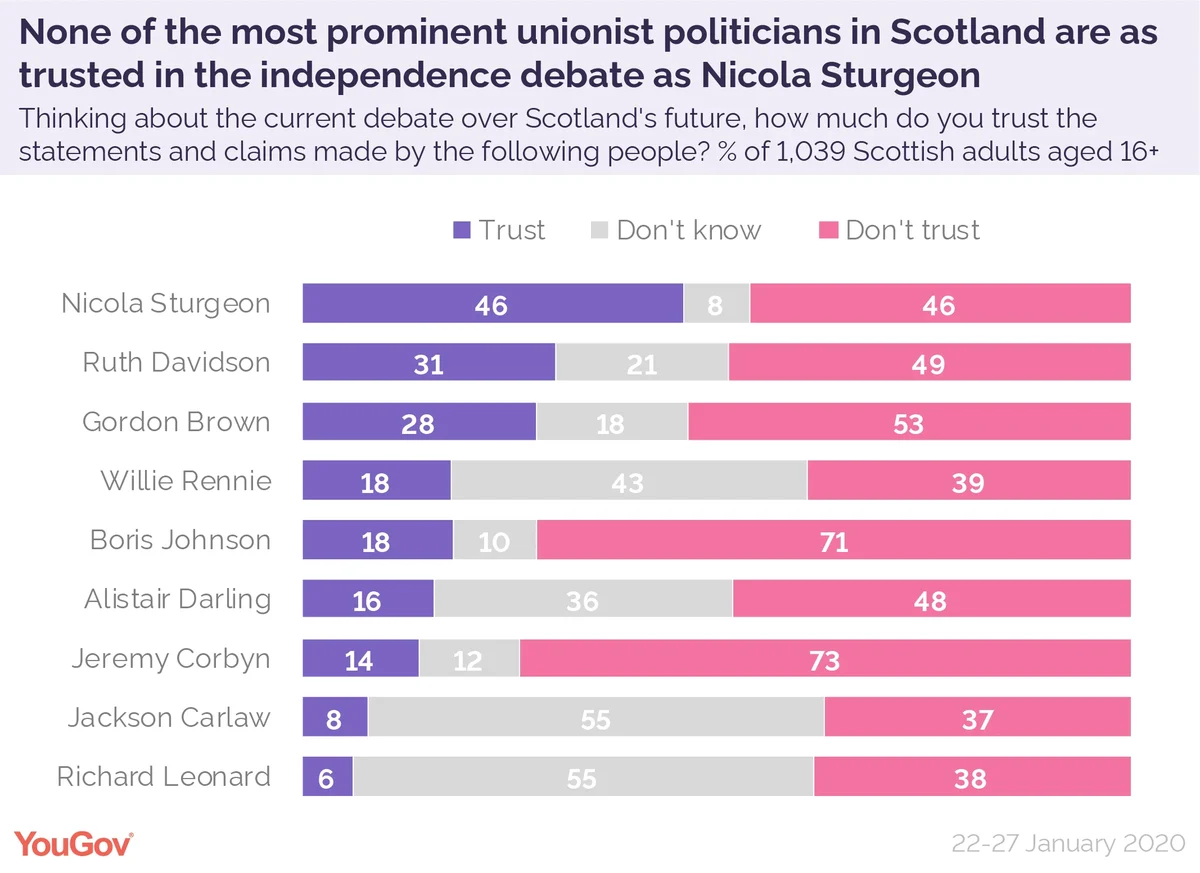
However, on the unionist side none of the politicians we tested were nearly as trusted. Just 16% trust Alistair Darling, who led the previous campaign, as opposed to 48% who do not trust him. Boris Johnson’s numbers are even worse, with just 18% trusting him as opposed to over seven in ten (71%) who do not.
Gordon Brown, who recently intervened in the independence debate arguing for the regions to be “given a voice”, fares only slightly better with 28% trusting what he says, as opposed to 53% who do not.
The most popular unionist politician of those we tested continues to be Ruth Davidson, with 31% saying they trust the statements she makes. However, at 49%, she still has more people saying they don’t trust what she says, and it is not clear whether she take part in a new campaign.
The argument still centres around sovereignty and the economy
When asked what the greatest advantages and disadvantages of Scottish independence would be, it is clear that the debate still centres around the economy and sovereignty.
On the No side, the biggest advantage of remaining in the UK are still related to the economy, such as “If Scotland faced financial problems, the UK would have the resources to help, as it did in the banking crisis in 2008” – picked by 29% – and “Scotland would definitely be able to continue using the pound as its currency” – picked by 23%.
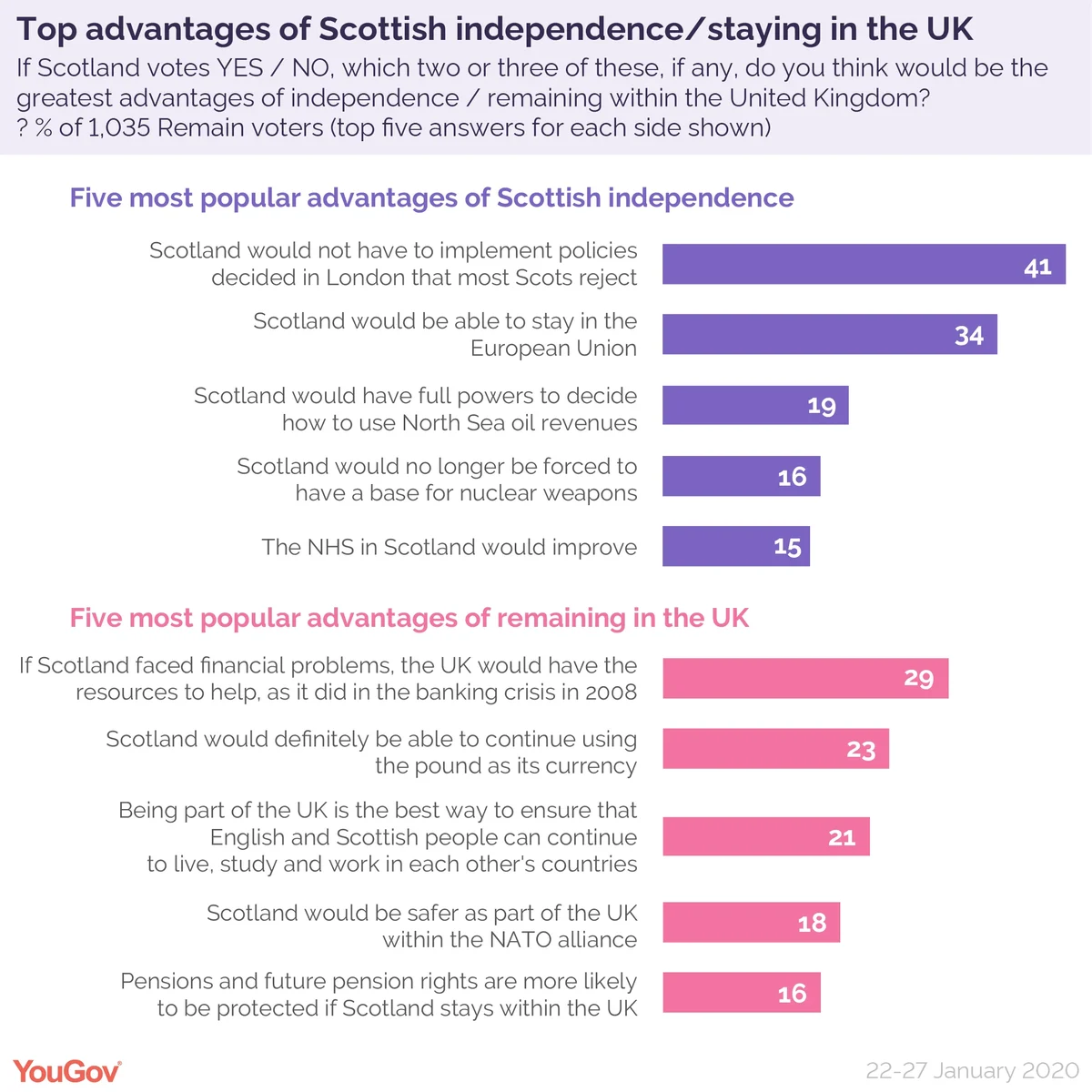
On the Yes side the biggest advantage is perceived as being “Scotland would not have to implement policies decided in London that most Scots reject”, picked by 41% of Scots (including 56% of independence swing voters).
However, it is clear that Brexit does put additional argument into the nationalist artillery, with 34% of Scots, and 46% of indie swing voters, picking “Scotland would be able to stay in the European Union” as one of the main advantages of independence.
So can Yes get over the line this time?
Ultimately, whether a referendum happens won’t be decided by polling, but the political manoeuvres of the Scottish and British governments.
However if a referendum is agreed then Brexit does give nationalists an opportunity to win more voters over to their cause. They have already won over many Remainers who didn’t support them in 2016, and staying in the EU is seen as a great potential advantage of splitting with the UK.
The unionist cause also suffers from having fewer popular political leaders in Scotland, made more difficult by the decline of the Scottish Labour party since 2014.
And yet the fundamental problem that flummoxed the “Yes” movement in 2014, that independence would damage the economy, still exists and could still set them back in a referendum rerun.
At this stage, it is difficult to say how another referendum could end up playing out, if indeed there is one. But as things currently stand, the British Isles could be subject to yet another excruciatingly tight referendum.
Photo: Getty
